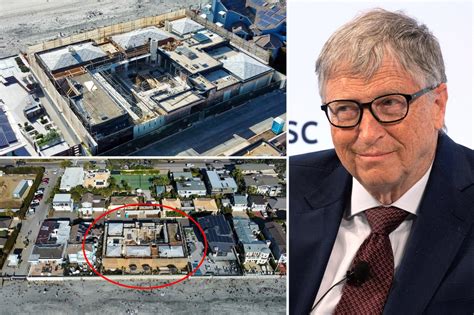
A former Tesla manager is warning of potential collapse for Elon Musk’s electric vehicle empire, citing critical issues with product quality, declining brand reputation, and questionable leadership decisions.
A former Tesla insider has raised serious doubts about the long-term viability of Elon Musk’s electric vehicle company, suggesting the automaker is facing a perfect storm of challenges that could lead to its downfall. Steven Henke, a former Tesla service manager who worked at the company from 2016 to 2020, paints a grim picture of Tesla’s current state in an interview with Yahoo Finance, citing declining quality, a damaged brand, and leadership concerns as key factors contributing to the potential “game over” scenario.
Henke’s criticisms are centered around what he describes as a significant drop in Tesla’s build quality. He alleges that Tesla vehicles are plagued with defects right from the factory floor, leading to a never-ending cycle of repairs and customer dissatisfaction. “The cars haven’t improved,” Henke stated. “It’s the opposite. They’ve gotten worse. The paint is still garbage. The panels still don’t line up. They leak when it rains. This is the status quo.” This reported decline in quality, according to Henke, directly undermines Tesla’s premium brand image.
The former manager also highlights what he believes is a growing problem with Tesla’s brand perception. Years ago, Tesla represented innovation and a forward-thinking approach to transportation. However, Henke argues that a combination of quality control issues, increased competition from other electric vehicle manufacturers, and Musk’s controversial public persona have tarnished the brand. “The competition’s better, and Tesla hasn’t changed anything. They haven’t evolved, and that’s a problem,” Henke noted. He suggests that Tesla’s failure to innovate and address existing problems could push consumers toward rival EV offerings.
Henke also points to Elon Musk’s leadership as a potential liability for Tesla. While acknowledging Musk’s vision and past successes, he questions whether Musk’s increasingly erratic behavior and controversial pronouncements on social media are hurting the company’s image and distracting from core operational issues. “At some point, people are going to get sick of it and they’re going to be like, ‘Enough is enough. I’m going to buy something different,’” Henke stated, referencing Musk’s behavior.
Henke’s perspective is based on his direct experience within Tesla’s service operations. During his tenure, he witnessed firsthand the challenges of dealing with widespread quality issues and the frustration of Tesla owners. His observations offer a unique insider’s view on the problems Tesla faces, although it’s important to note that his comments reflect his personal opinions and experiences, and might not represent the views of all current or former Tesla employees.
Adding to the challenges, Henke suggests Tesla’s service infrastructure is inadequate to handle the volume of repairs required by its growing fleet of vehicles. He claims long wait times for service appointments and a lack of skilled technicians contribute to customer dissatisfaction. This service bottleneck, coupled with persistent quality problems, creates a negative feedback loop that could further damage Tesla’s reputation.
The rise of competition in the electric vehicle market poses another significant threat to Tesla’s dominance. Established automakers like Ford, General Motors, and BMW, along with new entrants like Rivian and Lucid, are all vying for a piece of the EV pie. These competitors are offering a wider range of electric vehicles, from affordable models to high-end luxury cars, giving consumers more choices than ever before. Tesla, once the undisputed leader in the EV space, now faces a crowded and increasingly competitive landscape.
Tesla’s financial performance in recent quarters has also raised concerns among analysts. While the company continues to generate revenue and deliver vehicles, its profit margins have come under pressure due to increased production costs, price cuts aimed at boosting sales, and investments in new technologies like self-driving. Some analysts worry that Tesla’s aggressive growth strategy and ambitious projects, such as the Cybertruck and the Optimus robot, could strain the company’s resources and impact its profitability.
The Cybertruck, in particular, has faced numerous delays and production challenges. The vehicle’s unconventional design and complex manufacturing process have proven difficult to scale, pushing back its launch date multiple times. The delays have frustrated potential customers and raised questions about Tesla’s ability to execute its ambitious product roadmap.
The Optimus robot, Tesla’s humanoid robot project, is another high-risk, high-reward endeavor. While Musk has touted the potential of Optimus to revolutionize manufacturing and other industries, the project is still in its early stages, and it remains unclear whether Tesla can successfully develop a functional and commercially viable humanoid robot. The substantial investment required for the Optimus project could divert resources away from Tesla’s core automotive business.
Despite these challenges, Tesla still holds several advantages. The company has a strong brand reputation, a loyal customer base, and a vast charging network. Tesla also possesses advanced battery technology and a sophisticated software platform. Whether these advantages will be enough to overcome the challenges ahead remains to be seen.
Ultimately, whether Tesla can avoid the “game over” scenario Henke predicts will depend on the company’s ability to address its quality control issues, improve its service operations, maintain its technological edge, and navigate the increasingly competitive EV market. Musk’s leadership will also be crucial in guiding Tesla through this critical period and restoring investor confidence.
To further understand the context of Henke’s statements and the potential implications for Tesla, it’s essential to consider the broader trends in the electric vehicle market and the challenges facing the automotive industry as a whole.
The global electric vehicle market is experiencing rapid growth, driven by government incentives, increasing consumer awareness, and technological advancements. However, this growth is also creating new challenges for automakers, including the need to secure access to critical battery materials, scale up production capacity, and develop robust charging infrastructure.
The automotive industry is also undergoing a major transformation, with new technologies like autonomous driving, connectivity, and electrification disrupting traditional business models. Automakers are facing pressure to invest heavily in these new technologies while also managing the transition away from internal combustion engines.
Tesla, as a leader in the electric vehicle market, is at the forefront of these changes. The company’s success or failure will have a significant impact on the future of the automotive industry and the transition to sustainable transportation.
Henke’s observations about Tesla’s quality control issues echo concerns raised by other industry analysts and Tesla owners. Several reports have documented problems with Tesla’s build quality, including misaligned panels, paint defects, and electrical issues. These issues have led to customer complaints and negative reviews, potentially damaging Tesla’s brand reputation.
Tesla has acknowledged some of these quality control issues and has taken steps to address them, including investing in new manufacturing processes and improving its quality assurance procedures. However, it remains to be seen whether these efforts will be enough to resolve the problems and restore customer confidence.
The increasing competition in the electric vehicle market is also a significant challenge for Tesla. As more automakers enter the EV space, consumers will have more choices, and Tesla will need to differentiate itself to maintain its market share. Tesla’s advantages in battery technology, software, and charging infrastructure may not be enough to overcome the growing competition.
Tesla’s financial performance is another key factor to watch. The company’s profitability has been volatile in recent quarters, and its future financial performance will depend on its ability to manage costs, increase production, and maintain its sales growth. Tesla’s ambitious projects, such as the Cybertruck and the Optimus robot, could strain the company’s resources and impact its profitability.
Elon Musk’s leadership will be crucial in guiding Tesla through these challenges. Musk’s vision and entrepreneurial spirit have been instrumental in Tesla’s success, but his controversial behavior and public pronouncements have also created controversy and damaged the company’s image. Musk will need to balance his innovative vision with responsible leadership to ensure Tesla’s long-term success.
Henke’s warning about a potential “game over” scenario for Tesla should be taken seriously. While Tesla still has several advantages, the company faces significant challenges that could threaten its future. Tesla’s ability to address its quality control issues, improve its service operations, maintain its technological edge, and navigate the increasingly competitive EV market will determine whether it can avoid the fate Henke predicts.
Tesla’s response to these criticisms will be crucial. The company needs to demonstrate a commitment to improving quality, addressing customer concerns, and adapting to the changing landscape of the electric vehicle market. If Tesla can successfully navigate these challenges, it can maintain its position as a leader in the EV space. However, if it fails to address these issues, it could face a difficult future.
The long-term success of Tesla will depend not only on its ability to produce and sell electric vehicles but also on its ability to build a sustainable and profitable business model. This will require managing costs effectively, investing in new technologies, and maintaining a strong brand reputation.
The electric vehicle market is still in its early stages, and there is plenty of room for growth. However, the competition is intensifying, and Tesla will need to continue to innovate and adapt to stay ahead of the curve.
Henke’s comments serve as a reminder that even the most successful companies can face challenges and that complacency can be a recipe for disaster. Tesla needs to take these warnings seriously and act decisively to address the issues facing the company.
The future of Tesla is uncertain, but the company’s ability to overcome its challenges and adapt to the changing landscape of the electric vehicle market will determine its ultimate fate.
The claims made by Henke should also be viewed within the context of the potential motivations of a former employee. While his experience provides valuable insight, it is possible that personal biases or unresolved grievances could influence his perspective. It is important to consider this potential when evaluating his claims.
Tesla has not yet officially responded to Henke’s comments. It will be important to see how the company addresses these concerns and whether it takes any steps to address the issues he has raised.
The situation surrounding Tesla and the challenges it faces is complex and multifaceted. There is no single factor that will determine the company’s future. Instead, it will be a combination of factors, including its ability to address its quality control issues, improve its service operations, maintain its technological edge, and navigate the increasingly competitive EV market.
The automotive industry is constantly evolving, and Tesla will need to continue to adapt and innovate to stay ahead of the curve. The company’s future success will depend on its ability to anticipate and respond to the changing needs of consumers and the evolving landscape of the electric vehicle market.
The “game over” scenario that Henke warns of is not inevitable. Tesla has the potential to overcome its challenges and continue to be a leader in the electric vehicle market. However, it will require a concerted effort to address the issues facing the company and to adapt to the changing landscape of the automotive industry.
The electric vehicle revolution is still underway, and Tesla has played a significant role in driving this transformation. The company’s future success will depend on its ability to continue to innovate and to provide consumers with compelling and sustainable transportation solutions.
In conclusion, the former Tesla manager’s assessment provides a critical, if potentially biased, perspective on the challenges facing the company. While “game over” may be a dramatic overstatement, his points regarding quality control, brand perception, and leadership deserve careful consideration as Tesla navigates an increasingly competitive and demanding market. The coming years will be pivotal in determining whether Tesla can maintain its dominance or succumb to the pressures identified by Henke.
Frequently Asked Questions (FAQs)
-
Who is Steven Henke, and what is his background?
Steven Henke is a former Tesla service manager who worked for the company from 2016 to 2020. He held a position that gave him direct insight into Tesla’s service operations and customer relations. His experience allows him to speak from a perspective of someone intimately familiar with the practical challenges faced by Tesla.
-
What are the main concerns raised by Henke about Tesla’s current state?
Henke primarily raises concerns about three key areas: declining product quality (particularly issues with paint, panel alignment, and water leaks), a tarnished brand reputation due to quality issues and Musk’s behavior, and questionable leadership decisions by Elon Musk. He suggests that Tesla’s lack of improvement and increased competition could lead to a potential downfall.
-
How does Henke’s perspective on Tesla’s quality compare to other criticisms of the company?
Henke’s observations are consistent with other criticisms levelled against Tesla, especially regarding production quality. There have been numerous reports and complaints about issues such as misaligned panels, paint imperfections, and various mechanical problems in Tesla vehicles. His statements reinforce the idea that these are not isolated incidents but persistent issues.
-
What are the implications of increased competition in the EV market for Tesla, according to Henke?
Henke argues that Tesla’s failure to evolve and address existing problems, coupled with the rise of more compelling EV offerings from competitors, could push consumers to choose alternatives. This increase in competition may expose Tesla’s weaknesses and reduce its market dominance.
-
How does Elon Musk’s leadership factor into Henke’s concerns about Tesla’s future?
Henke suggests that while Elon Musk’s vision was instrumental in Tesla’s initial success, his controversial public behavior and potentially distracting side projects could be detrimental to the company’s image and focus. He believes that at some point, Musk’s actions could alienate potential customers and damage Tesla’s brand.
-
What specific quality issues did Henke observe during his time at Tesla?
Henke reported issues such as poor paint quality, misaligned body panels, and water leaks into the vehicle interiors. He claims these problems were not isolated but widespread and persistent.
-
How did Tesla’s service infrastructure handle the volume of repairs, according to Henke?
Henke claims that Tesla’s service infrastructure was inadequate to handle the high volume of repairs needed for its vehicles. He described long wait times for service appointments and a shortage of skilled technicians, contributing to customer dissatisfaction.
-
What impact does Henke believe Elon Musk’s public persona has on the Tesla brand?
Henke believes that Musk’s increasingly erratic behavior and controversial social media pronouncements are negatively impacting Tesla’s brand image and distracting from core operational issues.
-
Besides established automakers, what other companies are posing a competitive threat to Tesla in the EV market?
Henke and the original article infer that new entrants like Rivian and Lucid, along with established automakers like Ford, General Motors, and BMW, are offering increasingly competitive electric vehicles, challenging Tesla’s market dominance.
-
What financial concerns have been raised about Tesla recently?
Concerns include pressured profit margins due to increased production costs, price cuts to boost sales, and significant investments in ambitious projects like the Cybertruck and Optimus robot.
-
What challenges have plagued the Tesla Cybertruck’s development and release?
The Cybertruck has faced numerous delays and production challenges due to its unconventional design and complex manufacturing process, leading to frustration among potential customers.
-
What is the Optimus robot project, and why might it be a risky endeavor for Tesla?
The Optimus robot is Tesla’s humanoid robot project, intended for use in manufacturing and other industries. It’s considered risky because it’s in early stages, requires substantial investment, and it’s uncertain whether Tesla can successfully develop a commercially viable product.
-
What advantages does Tesla still possess despite the challenges outlined?
Tesla retains a strong brand reputation, a loyal customer base, a vast charging network, advanced battery technology, and a sophisticated software platform.
-
What key factors will determine whether Tesla can avoid the “game over” scenario?
Tesla’s ability to address quality control issues, improve service operations, maintain its technological edge, and effectively navigate the increasingly competitive EV market will be critical. Elon Musk’s leadership will also play a significant role.
-
How is the global electric vehicle market changing, and what impact does this have on Tesla?
The global EV market is experiencing rapid growth, driven by government incentives, consumer awareness, and technological advancements. This growth creates challenges for automakers, including securing battery materials, scaling production, and developing charging infrastructure.
-
What steps has Tesla taken to address quality control issues?
Tesla has acknowledged some quality control issues and has invested in new manufacturing processes and improved quality assurance procedures to address them.
-
Why is financial performance a key factor to watch for Tesla?
Tesla’s profitability has been volatile, and its future financial performance depends on managing costs, increasing production, maintaining sales growth, and funding ambitious projects.
-
How can Tesla maintain its position as a leader in the electric vehicle market?
Tesla needs to demonstrate a commitment to improving quality, addressing customer concerns, and adapting to the changing landscape of the electric vehicle market.
-
What are the potential motivations of a former employee making negative claims about their former employer?
Potential motivations include personal biases or unresolved grievances that could influence their perspective. It’s essential to consider this when evaluating the claims made by former employees.
-
What response, if any, has Tesla made to Steven Henke’s comments?
As of the original news article’s publication, Tesla had not yet officially responded to Henke’s comments.
-
How might complacency contribute to a company’s downfall, as suggested by Henke’s comments?
Complacency can lead to a failure to adapt to changing market conditions, address critical issues, and innovate, which can ultimately lead to a company’s decline, even one that was previously successful.
-
What are some examples of how Tesla might adapt and innovate to stay ahead in the EV market?
Adaptation and innovation could include developing new battery technologies, improving charging infrastructure, creating more affordable models, enhancing software and autonomous driving capabilities, and addressing quality control issues.
-
What is the significance of Tesla’s ability to build a sustainable and profitable business model?
Building a sustainable and profitable business model ensures Tesla’s long-term viability, allowing it to continue investing in new technologies, expanding production, and maintaining a strong brand reputation.
-
What is the overall message conveyed by Steven Henke’s assessment of Tesla?
The message conveys a critical, if potentially biased, perspective on the challenges facing Tesla, particularly regarding quality control, brand perception, and leadership, which deserve careful consideration as Tesla navigates an increasingly competitive and demanding market.
-
What could Tesla do to improve its relationship with its customer base, given the concerns raised?
To improve customer relations, Tesla could focus on enhancing product quality, improving service response times, being more transparent about product issues, and actively addressing customer concerns and complaints.









